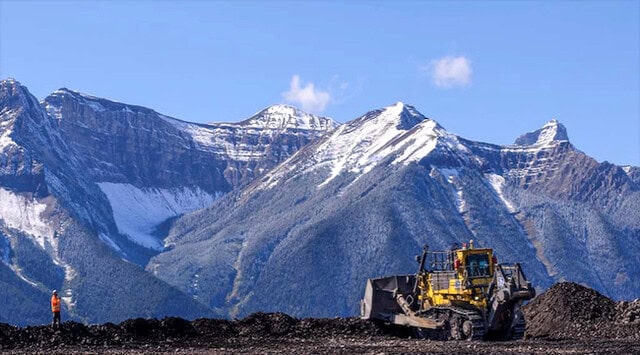
Teck Resources sets target to be ‘carbon neutral’ by 2050
The Vancouver-based mining company proposing to build the massive Frontier oilsands mine in northeastern Alberta has set a target to be “carbon neutral” by 2050.
Teck Resources Ltd., which is awaiting a decision from the federal government on Frontier expected this month, says it will try to achieve its goal by first avoiding the production of emissions and then by minimizing or eliminating what it does produce.
It says it will look at alternative ways of moving materials at its mines, using cleaner power sources and implementing efficiency measures, while producing more metals including copper for electric vehicles and renewable power generation.
“Setting the objective to be carbon neutral by 2050 is an important step forward in our commitment to reducing emissions and taking action on climate change,” Teck CEO Don Lindsay said Monday in a news release.
“Climate change is a global challenge that our company and our industry need to contribute to solving.”
Lindsay wasn’t available for an interview.
At an investment conference last week in Banff, Lindsay said winning federal approval for the Frontier project doesn’t necessarily mean it will be built — the company will also need adequate pipeline access, the right commodity prices and a partner to share costs before proceeding.
He defended Teck’s environmental record at the event, noting money manager BlackRock Inc. is one of its top investors and it has the support of CEO Larry Fink, who wrote recently that “climate change has become a defining factor in companies’ long-term prospects.”
“We have carbon, no question about it. We have coal and we have oil,” Lindsay said in Banff.
“But the distinction is we have the good coal, not the bad coal. I talked to Larry Fink last week and BlackRock has made their announcements, but it’s about thermal coal. We have 99 per cent high-quality hard coking coal, steelmaking coal … that institution is one of our top five shareholders and they still are and they won’t be selling.”
Teck separately announced Monday it and its partners have signed a long-term power purchase agreement for their new copper mining project in Chile, which will result in about half of its operating needs being satisfied by renewable energy sources.
Teck’s ownership of 21.3 per cent of the Fort Hills oilsands mining project operated by Suncor Energy Inc., and its pursuit of the Frontier project makes its pledge hollow, said Greenpeace Canada campaigner Keith Stewart on Monday.
“If Teck is serious about this commitment, then they need to get out of the oil business,” he said in an email.
“You can’t promise to stop using internal combustion engines in your own operation as part of being zero-emissions, and then go out and invest $20 billion to build a new 260,000 barrels per day oilsands mine to put gas and diesel in other people’s vehicles for the next half-century.”
The Frontier mine north of Fort McMurray, Alta., is expected to produce about four million tonnes of greenhouse gas emissions per year for more than 40 years.
In a report on Monday, consulting firm Deloitte listed “The path to decarbonization” as one of 10 key challenges facing the mining sector in 2020 and beyond.
Teck’s pledge is the latest in a series of carbon-reduction promises from industrial companies.
Last month, oilsands producer Cenovus Energy Inc. said it will aim to achieve “net zero” greenhouse gas emissions by 2050. It added it will reduce its emissions per barrel by 30 per cent by 2030, while keeping its total emissions flat.
Spanish energy giant Repsol, which produces oil and gas in Canada, announced late last year it would try to achieve net zero emissions globally by 2050 through technology, increases in the production of biofuels and chemicals with low carbon footprint, and expansion of low-carbon electricity generation.


